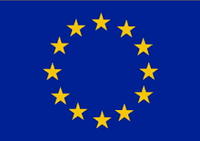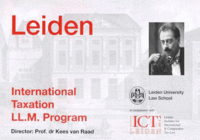
For the new readers or the ones that skip the interesting posts (I do not blame you!) “The Article Crawler” provides a selection of recent articles from the latest numbers of the IBFD journals (
see the first post). In this post I selected 4 articles, 1 from the Bulletin, 2 from the European Taxation and 1 article from the Derivatives & Financial Instruments Journal.
Bulletin for International Fiscal Documentation
Volume 59, 2005, No. 7
Rethinking the Design of Australia's CFC Rules in the Global Economy
By Lee Burns
CFC (*) is still an issue in vogue, which raises difficult problems. This article examines the key design features of Australia's CFC rules to see whether they effectively counter the use of tax havens and preferential tax regimes and at the same time, if they unnecessarily inhibit a country's multinationals from competing in the global economy. This article (written from the perspective of Australia, where there has been much debate over the last few years on the design of CFC rules) reconsiders the design of those CFC rules in the context of the global economy. Once you read it you will see tat many of the issues raised may be transposed to your jurisdiction’s CFC rules.
Note - By the way did you knew that there is no CFC legislation in Austria, Belgium, Malta, Cyprus, Ireland, Netherlands, Poland, Slovak Republic, Latvia, Greece, Czech Republic and a quasi EU country called Switzerland?
Derivatives & Financial Instruments
Volume 7, 2005 , No. 3
Controlled Foreign Companies and the EU Parent-Subsidiary Directive
By Anton Joseph
To continue in the wave of CFC’s, here is another article examining the role of controlled foreign companies in offshore investment by Australian residents and the impact of the EU Parent-Subsidiary Directive on them. This article is very interesting since it explores the impact of the recent amendment to the Directive, which permits countries to identify fiscally transparent entities and obliges them to refrain from taxing the distributed profits of subsidiaries.
European Taxation
Volume 45, 2005 , No. 7
Harmful Tax Competition Revisited: Why Not a Purely Legal Perspective Under EC Law?
By Luca Cerioni
This long article about the contentious issue of Harmful Tax Competition examines whether or not the European Union should rely on tax competition rather than on tax harmonization with regard to corporate taxation. The author considers the competition between the Member States in designing their general corporate tax regimes and concludes that national tax policymakers may decide that the significant predictability in the effects of competition based on general corporate tax regimes could be in their long-term interests. Defiantly, a different approach.
Preliminary Ruling Requested from the ECJ on the Compatibility of French Taxation on Outbound Dividends with the Freedom of Establishment
By Séverine Baranger
Now it time to say some words about a colleague and friend’s article. This article covers the very recent request for a preliminary ruling from the ECJ regarding the question of whether or not the French withholding tax on outbound dividends (which provides for the taxation of dividends in the hands of a non-resident parent company, but which grants an exemption to a French-resident parent company) is compatible with the freedom of establishment as set out in the EC Treaty. According to severine this case can prove to be groundbreaking since it refers to issues that the ECJ has yet to consider. I already discussed with the author and even made a
post on this case. Basically, I disagree on the groundbreaking factor of this case and think it will be one of those cases that is decided on the sidelines (lateral issue, no fuss and the game continues). For Severine, I hope I am mistaken.
(*) Controlled foreign company (CFC) regime is generally a regime designed to combat the sheltering of profits (deferral) in companies resident in low or no tax jurisdictions. Such regimes generally only operate by attributing tax-sheltered profits (to the shareholders on a pro rata basis) where some element of control is exercised by shareholders resident in the country applying the CFC regime. Generally, only certain types of income fall within the scope of CFC legislation, i.e. passive income such as dividends, interest and royalties produced by the provision of services or sales between affiliated companies. Subpart F is the name for the US CFC rules (if I am not mistaken the first of such kind to be enacted).










